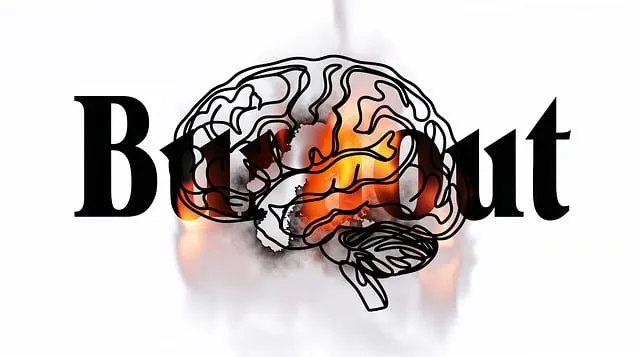The Lone Tree Kaiser Permanente behavioral health center emphasizes mood regulation as a vital component of mental well-being, offering strategies for managing emotions and averting psychological issues. They promote mindfulness, understanding triggers, and healthy coping mechanisms to improve daily functioning, reduce stress, enhance decision-making, and foster stronger relationships. Their approach includes professional practices like Compassion Cultivation Practices (CCP) and structured self-care routines, along with tailored interventions like cognitive-behavioral therapy (CBT), group settings, and community outreach for trauma support and personal growth. By empowering individuals to manage their emotional responses, the center fosters adaptability, confidence, and long-term mental well-being.
Mood regulation is a vital skill in today’s fast-paced world. This comprehensive guide explores strategies to manage and enhance your emotional well-being, covering everything from daily practices at home to professional therapy options. We delve into the significance of mood regulation and its impact on overall health.
Learn effective techniques to navigate life’s challenges, drawing inspiration from the expertise of Lone Tree Kaiser Permanente Behavioral Health Center, offering personalized plans for optimal mental health management.
- Understanding Mood Regulation and Its Impact
- Strategies for Daily Mood Management at Home
- The Role of Therapy and Professional Support
- Creating a Personalized Mood Regulation Plan with Lone Tree Kaiser Permanente Behavioral Health Center
Understanding Mood Regulation and Its Impact

Understanding Mood Regulation and Its Impact
Mood regulation is a vital aspect of mental well-being, offering individuals the power to navigate life’s ups and downs with resilience. At the Lone Tree Kaiser Permanente behavioral health center, experts emphasize that recognizing and managing emotions effectively can prevent more severe psychological issues. By employing various mood regulation strategies, people can enhance their overall quality of life. This process involves becoming aware of one’s feelings, understanding triggers, and developing healthy coping mechanisms to maintain emotional balance.
Effective mood regulation has a profound impact on daily functioning. It helps individuals reduce stress levels, improve decision-making abilities, and foster better relationships. Moreover, it plays a crucial role in trauma support services, providing tools for conflict resolution techniques that can transform negative experiences into opportunities for growth. Through tailored interventions, the Lone Tree Kaiser Permanente behavioral health center guides patients to master their emotional responses, ensuring they are equipped to handle life’s challenges with increased confidence and adaptability.
Strategies for Daily Mood Management at Home

At home, individuals can employ various strategies to effectively manage their daily moods and promote mental well-being. The Lone Tree Kaiser Permanente behavioral health center recommends a holistic approach that integrates both professional practices and personal habits. One such practice is cultivating compassion towards oneself and others, known as Compassion Cultivation Practices (CCP), which can help reduce stress and anxiety while enhancing overall life satisfaction.
Developing a structured self-care routine is another crucial aspect. This involves setting aside dedicated time for activities that support emotional intelligence, such as mindfulness exercises, journaling, or engaging in creative pursuits. By incorporating regular moments of calm and reflection into their daily lives, individuals can better understand and manage their emotions. Additionally, establishing a consistent Self-Care Routine Development can provide a sense of control and stability, contributing to improved mental health outcomes.
The Role of Therapy and Professional Support

Therapy and professional support play a pivotal role in effective mood regulation strategies. At Lone Tree Kaiser Permanente behavioral health center, experts provide tailored interventions to help individuals navigate their emotional challenges. These sessions often involve exploring underlying causes of mood disruptions, fostering resilience building through evidence-based practices. Through psychotherapy, clients learn empathy building strategies, enhancing their ability to understand and manage their emotions more effectively.
In addition to individual therapy, group settings facilitated by professionals at the Lone Tree Kaiser Permanente behavioral health center offer a unique opportunity for social skills training. Here, individuals can share experiences, gain insights from peers facing similar struggles, and develop coping mechanisms in a supportive environment. This collective approach not only complements individual therapy but also strengthens the sense of community, fostering a network of support that contributes to long-term mental well-being.
Creating a Personalized Mood Regulation Plan with Lone Tree Kaiser Permanente Behavioral Health Center

Creating a Personalized Mood Regulation Plan at Lone Tree Kaiser Permanente Behavioral Health Center is a transformative step toward emotional well-being. This comprehensive approach involves collaborating with experienced professionals to understand your unique triggers and develop tailored strategies. By integrating evidence-based practices, such as cognitive-behavioral therapy (CBT) and mindfulness techniques, individuals can gain valuable tools for managing their moods effectively.
The Lone Tree Kaiser Permanente behavioral health center prioritizes a holistic view of mental health, addressing not just symptoms but the underlying causes. Through personalized therapy sessions, support groups, and community outreach programs, they foster an environment that promotes healing and growth. By combining advanced therapeutic methods with a focus on self-care, this center empowers individuals to take charge of their emotional healing processes, cultivate positive thinking, and advocate for themselves within the broader mental health policy landscape.
Mood regulation is a vital skill for enhancing overall well-being. By understanding the impact of mood on daily life and employing effective strategies, individuals can take control of their emotional state. This article has explored various techniques, from home practices to professional therapy, offering a comprehensive guide to managing moods. The Lone Tree Kaiser Permanente Behavioral Health Center emphasizes the importance of personalized plans, tailored to individual needs, for optimal results. With the right tools and support, anyone can navigate their emotional landscape, fostering resilience and a sense of calm.






